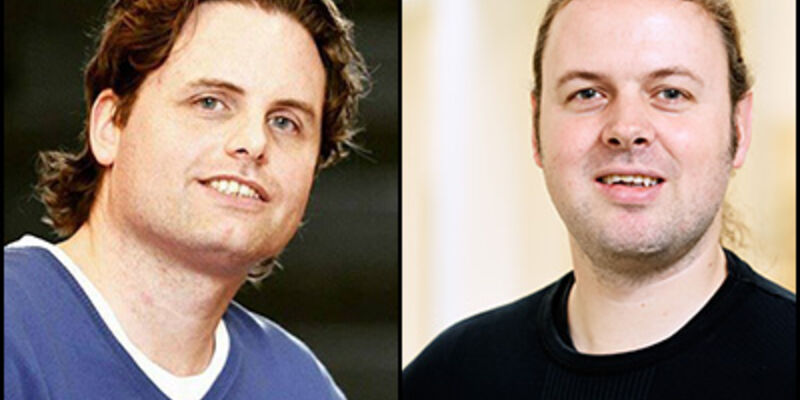
- Research
- 13/11/2015
Major European grants for Tom de Greef and Rudie Kunnen
Researchers Tom de Greef and Rudie Kunnen have both been awarded a Starting Grant of some 1.8 million euros by the European Research Council (ERC). De Greef’s work concentrates on synthetic biology, a field in which he is working on a method for the quicker reprogramming of cells. Rudie Kunnen’s research concerns a specific regime of turbulent flows, whose existence has only recently come to light but which play an important role in the flow of the fluid inner earth core and thus the behavior of the earth’s magnetic field.
Tom de Greef will be working on a method to significantly accelerate research in the field of synthetic biology. Synthetic biology concerns reprogramming cells so that they can exercise other functions, for example for medical purposes. Currently, researchers constantly make minor adjustments to the biochemical networks of the cell and then examine the effects. This time-consuming procedure in general takes several weeks.
De Greef wants to take some of this research outside of the cell itself, bringing the biochemical networks outside the cell in order to subsequently optimize the molecular interactions much faster, using the very latest microfluidic methods. Then by placing the biochemical networks back into the cell, he can see whether they behave similarly there. He hopes that the reprogramming of cells for therapeutic applications can be accelerated in this way. It is also an approach that provides more insight into the molecular processes and the information-processing behavior of biochemical networks in the cell.
Stars and planets
While science has a global understanding of the flows and transport of heat in the fluid earth core, a lot is still unknown, in part because we are unable to actually observe what is happening. The flow is determined by the rotation of the earth and the differences of temperature between the hot center and the relatively cool earth’s crust. For around five years it has been known that certain turbulences occur but these had not been observable in earlier experiments. The reason was that such turbulences only occur from a particular size, and these dimensions had not been achieved in the tests.
Rudie Kunnen will therefore use a four-meter high column that rotates about its axis and is filled with hot water, to monitor the flow processes in it. Those specifications should give him enough scope to study the, as yet, unknown effects. Parallel to this, he will also undertake computer simulations. While the insights he gains about flow and the transport of heat will initially be fundamental, they will then help create an understanding of the flows in the inner core and also in stars and other planets since there, too, similar flows occur.
Source: Pressteam TU/e
Discussion